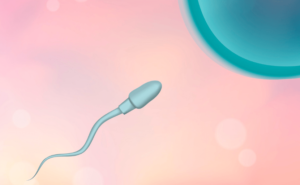- Introduction
- Is it okay to take a bath (bathtub) during pregnancy?
- Benefits of bathing during pregnancy
- Things to be careful about when bathing during pregnancy
- Points for pregnant women to bathe safely
- Conclusion
- Frequently Asked Questions about Bathing During Pregnancy
Introduction
“Though I love taking baths, I wonder if it’s safe to do so during pregnancy,” some might ponder.
Since pregnancy brings many changes to the body, it’s natural to question whether bathing as usual is still okay.
In this article, we’ll discuss precautions for bathing during pregnancy, to ensure the safety of both the expectant mother and the baby. We’ll cover the benefits of bathing, the use of bath additives, whether it’s safe to visit hot springs, and more. If you’re unsure about bathing during pregnancy, this guide is here to help.

Is it okay to take a bath (bathtub) during pregnancy?
First and foremost, the conclusion is that it is safe to take baths (in a bathtub) during pregnancy.
Regardless of pregnancy, as long as there are no specific health concerns or restrictions advised by a healthcare professional, there is no issue with bathing during pregnancy.
In fact, there are several benefits to bathing during pregnancy.
Benefits of bathing during pregnancy
Bathing during pregnancy offers various benefits.
During pregnancy, hormonal changes and increased blood volume can lead to swelling. Immersing oneself in a bath helps dilate blood vessels and promote blood circulation, thus reducing swelling. Additionally, the pressure exerted by the water stimulates blood vessels, aiding in the return of blood from the legs to the heart.
Therefore, bathing during pregnancy can be expected to alleviate swelling, a common issue during pregnancy.
Moreover, for those who enjoy baths, it provides a relaxing effect.
Pregnancy often brings hormonal imbalances, morning sickness, and increased susceptibility to stress and fatigue. So, another advantage of bathing during pregnancy is the opportunity to relax and alleviate stress and fatigue, providing relief to the tired body.
Things to be careful about when bathing during pregnancy
While there are benefits to bathing during pregnancy, it’s important to remember that the body undergoes changes during this time, necessitating certain precautions.
Here, let’s go through what to be mindful of during each stage of pregnancy: early pregnancy, mid-pregnancy, and late pregnancy.
Early pregnancy
Early pregnancy spans from conception to 13 weeks and 6 days.
During this period, hormonal fluctuations may cause symptoms such as fatigue, mood swings, changes in smell perception, and skin issues. However, since significant changes in body shape and condition may not have occurred yet, many can continue bathing as usual during early pregnancy.
However, due to hormonal changes affecting smell perception and potential skin issues, you might find that the scent of your usual body soap bothers you or it doesn’t agree with your skin anymore.
If you feel that products you used before aren’t suitable during pregnancy, consider switching to gentle, unscented options, or products specifically designed for pregnant bodies, including shampoo, body soap, and bath additives.
In case of morning sickness
During early pregnancy, you may experience morning sickness, including nausea and stomach upset.
If you’re experiencing severe symptoms of morning sickness, it’s best to avoid bathing forcefully. Bathing against your will may exacerbate your symptoms or make you feel even more uncomfortable.
Therefore, if you’re dealing with morning sickness, it’s advisable to maintain cleanliness through methods such as taking a shower or using a damp towel to wipe your body.
NIPT (Non-Invasive Prenatal Testing) from early pregnancy
Many people may worry about whether their baby will be born healthy.
The testing conducted before birth to check for any abnormalities in the baby in the womb is called “prenatal testing.”
At Hiro Clinic NIPT, it is possible to undergo NIPT (Newborn Screening) from the early stages of pregnancy to examine whether the baby in the womb has any chromosomal abnormalities. By conducting NIPT, it is possible to assess the presence or absence of risks such as Down syndrome, Edwards syndrome, and Patau syndrome.
Since the test can be done with just the mother’s blood sample, those who want to check if their baby’s chromosomes are normal should consider it.
Mid-pregnancy
The mid-pregnancy period spans from 14 weeks 0 days to 27 weeks 6 days. This period, often referred to as the “stable period,” is characterized by the easing of fatigue and morning sickness experienced in early pregnancy, as well as a decrease in the risk of miscarriage, resulting in stability for both the mother and the baby.
As the baby grows during mid-pregnancy, the abdomen enlarges, leading to changes in body shape. Additionally, with the increasing size of the abdomen, there is also weight gain. Therefore, during mid-pregnancy bathing, it’s important to be cautious of the risk of falls in the bathroom due to changes in body shape and weight.
When bathing, it’s crucial to remain vigilant against falls, even if it’s the same bathtub you’ve been using.
No room for complacency even in the stable period
While mid-pregnancy is often referred to as the stable period, it’s important not to let your guard down.
Even though your condition may be stable, there’s still a risk of infection or injury from falls, which could lead to premature birth or miscarriage. So, even though you’ve entered the stable period, don’t become complacent; be cautious while bathing.
Late pregnancy
The late pregnancy period begins from 28 weeks of pregnancy onwards.
As you enter late pregnancy, your abdomen becomes significantly larger, and you may experience discomfort such as abdominal tightness, reduced mobility, and back pain.
With the abdomen becoming larger than in mid-pregnancy, issues like difficulty in seeing your feet, imbalance, and an increased risk of falling become more pronounced. Therefore, during late pregnancy, it’s even more important to be cautious of falls while bathing compared to mid-pregnancy.
Particularly careful about falling during the last month
During the period known as “late pregnancy,” typically from around 36 to 39 weeks, just before delivery, it’s crucial to be especially cautious of falls.
If you fall during late pregnancy, there’s a risk of a condition called placental abruption, where the placenta detaches from the uterine wall before delivery. Placental abruption can lead to vaginal bleeding and, in severe cases, fetal death. Therefore, it’s particularly important to be careful of falls while bathing during late pregnancy.
Stop bathing if there is rupture of membranes
Once you reach late pregnancy, it’s not unusual for the baby to be born at any time.
There’s also a possibility of your water breaking while bathing. If your water breaks while bathing, you should immediately stop bathing. When your water breaks, it creates a connection between the inside of your uterus, where the baby is, and the outside environment, making it easier for bacteria to enter the uterus.
If bacteria enter the uterus and infect the baby, it can pose a risk to the baby’s health. So, if your water breaks, stop bathing immediately and contact your doctor.
Guidelines for temperature and bathing time
When bathing during pregnancy, aim for a bath temperature between 38°C and 40°C. Water that is too hot can be stimulating to the body, while water that is too lukewarm can cause you to feel cold.
Additionally, to avoid overheating, it’s best to avoid long baths. Aim for about 10 minutes in the bathtub.
Cooling down in the bath
After bathing, be cautious of getting chilled.
When you warm your body through bathing, your body naturally tries to regulate back to its original temperature by releasing heat. As a result, you may experience a drop in body temperature after bathing, which is known as getting chilled. To prevent getting chilled after bathing, make sure to dry your hair promptly and avoid going outside immediately.
About bath additives
Many people use bath additives when taking a bath, and this is common during pregnancy as well.
Just because you’re pregnant doesn’t mean you need to stop using bath additives. However, due to changes in smell perception caused by hormonal imbalances, you may find that you no longer tolerate the scent of the bath additives you used before.
In such cases, don’t force yourself. Consider stopping their use or switching to bath additives with a milder scent.

Infections
During pregnancy, your immune system is generally weaker than usual, which increases the risk of infections.
While bathing at home in your own bathtub poses little concern, public bathing facilities such as public baths or hot springs where many people come and go may pose a higher risk of infections due to the presence of a large number of individuals.
Is it okay to go to hot springs?
Until 2014, the Hot Springs Law, which governs the protection and use of hot springs, included “pregnancy (especially early and late stages)” in the list of contraindications. However, this wording was removed during the revision in 2014 because there is no medical basis for prohibiting pregnant women from bathing in hot springs. Therefore, it is perfectly safe for pregnant women to enter hot springs. There is also no evidence to suggest that specific types of hot spring water affect pregnant women differently.
However, it’s advisable to avoid traveling far to visit hot spring resorts during pregnancy. Even if the pregnancy is progressing smoothly, unexpected complications can occur. Therefore, it’s wise to avoid going to places far from the hospital you’re attending, as there is a possibility of trouble for both the mother and the baby.
Points for pregnant women to bathe safely
Here are five points for pregnant women to safely bathe.
- Be cautious of falls while bathing
- Aim for a bath temperature between 38°C and 40°C, with a bathing time of about 10 minutes
- If you’re feeling unwell, opt for a shower or cleansing instead of bathing
- Bathe when family members are present in case of emergencies
- Immediately stop bathing if your water breaks
By following these points, you can bathe safely during pregnancy.
Conclusion
This time, we discussed bathing during pregnancy.
While bathing during pregnancy is possible, it’s crucial to pay attention to factors such as falls, bathing time, and temperature.
With proper bathing practices, there are many benefits for pregnant women. Refer to this article and enjoy bathing safely during pregnancy.
【References】
- J-STAGE – Safety Assessment of Hot Spring Bathing for Pregnant Women
- Journal of the Japan Obstetrics and Gynecology Society (February 2010 Issue) – Pregnant Women and Hot Springs
Q&A
Here are some frequently asked questions about bathing during pregnancy. Take a look for reference.
-
QIs it okay to go into the sauna?During pregnancy, it is better to avoid entering a sauna.
If you do not enter the sauna properly, there is a risk of dehydration and heatstroke.
Also, if your core body temperature rises too much, it may have a negative impact on the fetus, so please avoid saunas during pregnancy. -
QIs it not good to just take showers during pregnancy?It's perfectly fine to just take showers during pregnancy. In fact, it's more harmful to force yourself to bathe when you're feeling unwell.
Adjust your bathing routine according to your condition, whether it's soaking in a bathtub or taking a shower.
Article Editorial Supervisor

Dr Hiroshi Oka
NIPT specialist clinic, MD
Graduated from Keio University, School of Medicine
 中文
中文






















